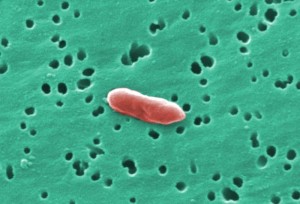Infants Given Antibiotics Have Higher Risk of Obesity
Many infants are given antibiotics for a mild infection just to be on the safe side. While this is a noble strategy, it is also wrought with the risk of reducing future immunity and increasing the risk of obesity later on.
In this article
Children followed for seven years
Researchers from the New York University School of Medicine’s Department of Pediatrics have determined that children given antibiotics prior to five months of age have a significantly higher risk of becoming obese later in life.
The researchers studied from a group of 11,532 children born in Avon, UK between 1991 and 1992. They focused on three groups: Those children given antibiotics before six months of age; those given antibiotics between six and 14 months of age, and those given antibiotics between 15 and 23 months of age.
They followed the children for seven years, and reviewed their weight an different periods. They found that children given antibiotics prior to six months of age were 22% more likely to be overweight at 38 months of age.
Furthermore, those babies given antibiotics between the ages of 15 and 23 months of age had a significantly greater risk of being overweight at age seven. The researchers noted that this later relationship was not as consistent as the relationship between antibiotics under six months and weight gain.
The researchers expressed the effect this finding potentially has on public health, and the need for further research to study these effects in more detail: “Given the prevalence of antibiotic exposures in infants, and in light of the growing concerns about childhood obesity, further studies are needed to isolate effects and define life-course implications for body mass and cardiovascular risks.”
While this may be a surprising finding to some, other research has indicated this, as infants born of smoking parents or with greater infections have also been linked with weight gain. Infections related to smoking or otherwise are often treated by pediatricians with antibiotics.
This is also why some bacteria are becoming resistant to all antibiotics.
How do antibiotics influence weight gain?
This association between obesity and antibiotics relates directly to the how our gut microbiota affect our digestion. Other research has confirmed that probiotics from the Lactobacillus family affect weight gain.
Lactobacillus gasseri has specifically has been linked to weight loss among both animals and humans considered obese, and Lactobacillus plantarum has been linked to weight loss in animal research.
The key lies in the processing our gut’s probiotics perform on our food. They help digest and restructure food molecules, enabling our food’s nutrients to be better utilized by the body. They will also help neutralize oxidative molecules in our foods – which are associated with inflammation and cardiovascular disease. An example of this is very low-density lipoprotein (VLDL).
This microbial gut processing directly affects our weight, as increased inflammation within the body is associated with weight gain.
This is also why eating more fiber helps drop the weight in adults. Because probiotics feed off of fiber nutrients.
REFERENCES:
Trasande L, Blustein J, Liu M, Corwin E, Cox LM, Blaser MJ. Infant antibiotic exposures and early-life body mass. Int J Obes (Lond). 2012 Aug 21. doi:10.1038/ijo.2012.132.
Dubois L, Girard M. Early determinants of overweight at 4.5 years in a population-based longitudinal study. Int J Obes (Lond). 2006 Apr;30(4):610-7.
Million M, Angelakis E, Paul M, Armougom F, Leibovici L, Raoult D. Comparative meta-analysis of the effect of Lactobacillus species on weight gain in humans and animals. Microb Pathog. 2012 Aug;53(2):100-8.
Cani PD, Osto M, Geurts L, Everard A. Involvement of gut microbiota in the development of low-grade inflammation and type 2 diabetes associated with obesity. Gut Microbes. 2012 Jul 1;3(4).
Adams C. Probiotics – Protection Against Infection: Using Nature’s Tiny Warriors To Stem Infection and Fight Disease. Logical Books, 2016.
















